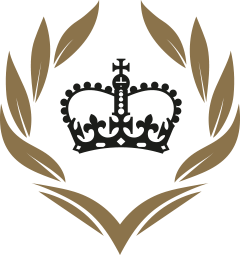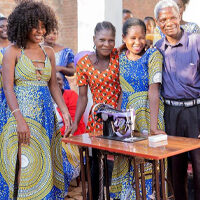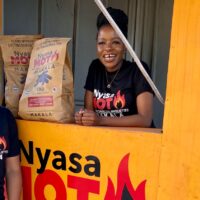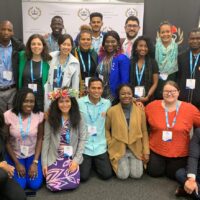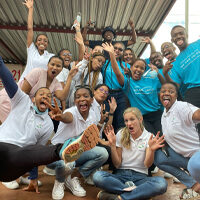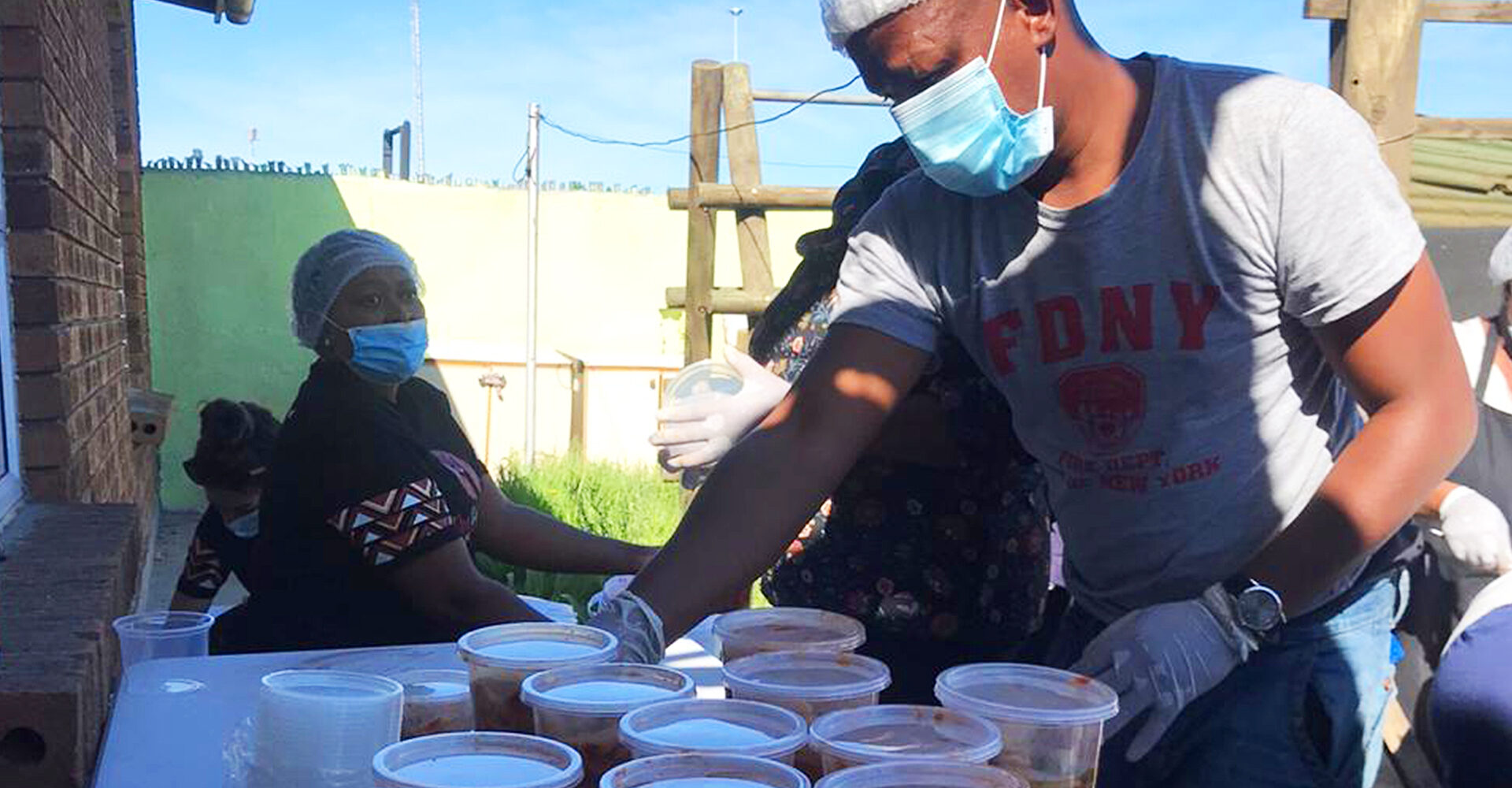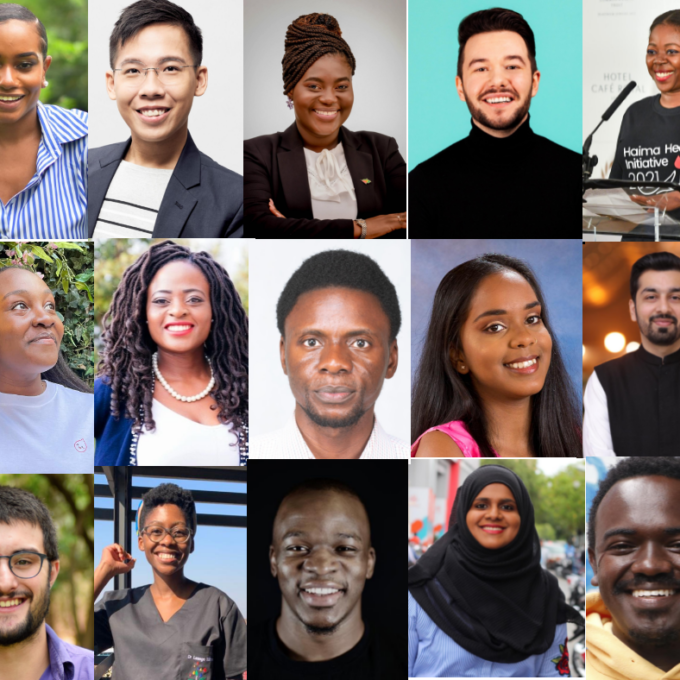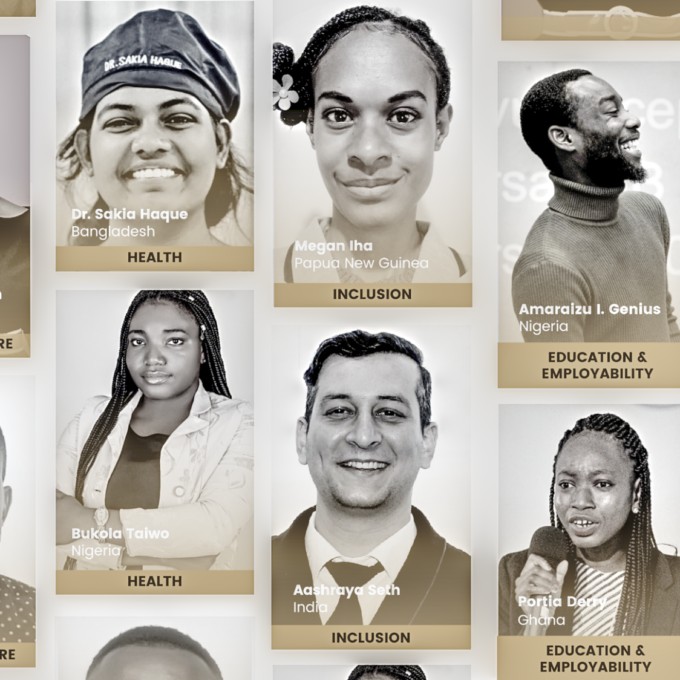In April 2020, we worked with our global network of young leaders to launch QCT’s COVID-19 Emergency Grants Programme to support small youth-led organisations delivering vital services during the pandemic.
In these challenging times, young leaders across the globe are struggling to access the funding they need to be able to support their local communities at a time when their work is needed more than ever.
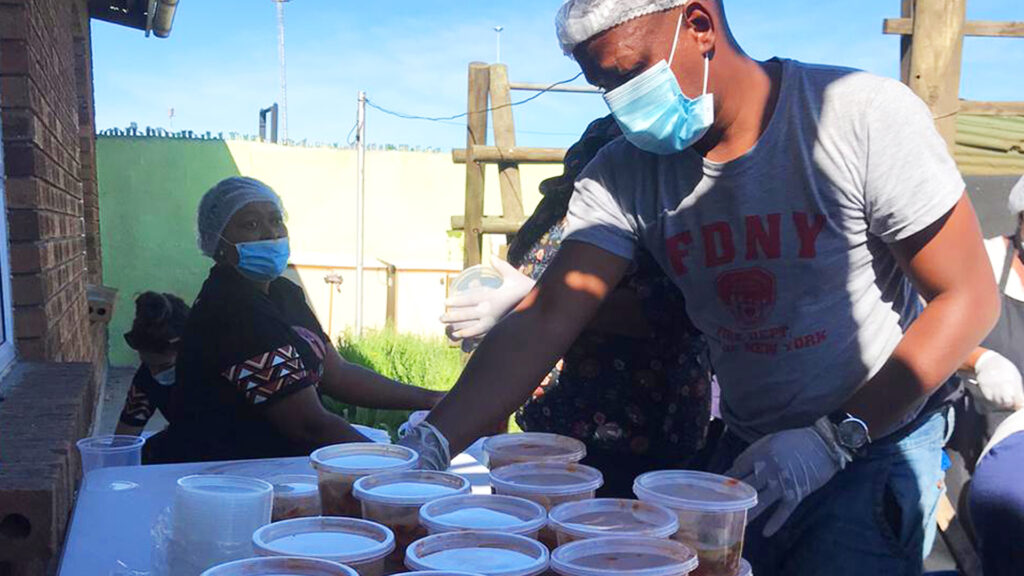
Our Emergency Grants Programme was designed to support the people and communities too often left behind or forgotten in times of crisis. Through our network of young leaders, we initially invited at-risk groups, including those working in Indigenous Groups and Small Island Developing States, before opening up to a wider group within our network.
Due to high demand, this programme was offered to groups of young leaders within our existing network and through selected referral partners only. We always wish we could help more people and this programme was designed to ensure the available funding was fairly distributed to those who needed it most.
We made a total of 35 grants of up to £5,000 to support small organisations delivering disaster relief and urgent services in direct response to COVID-19 or that required operational changes in order to continue delivering existing critical services during the pandemic. We are working with these organisations to help them track the impact of their work.
The following projects and organisations were funded through this programme:
Aid for Rural Education Access Initiative (AREAi), Nigeria: Supporting the set up of DigiLearns (www.digilearns.ng), which leverages SMS and artificial intelligence technology to allow AREAi to deliver government-approved and contextually-relevant content in the form of textbook and revision materials, quizzes and mini-lessons to basic-feature mobile phones that do not require internet connectivity. Students or learners can also ask teachers questions, search the internet offline, and receive assessment questions – both multiple-choice and open-ended – by text, whilst receiving feedback on their responses.
Alliance for Sustainable Healthcare (ASH): Supporting ASH to set up and design a mentoring access platform for mentoring physicians in the US, as well as mentee physicians or critical care provider’s training and overhead costs in Sierra Leone.
Alike, UK: Supporting ALIKE to complete the development and test phase of their app; a support platform to alleviate the loneliness, anxiety and mental health issues experienced by young cancer patients and survivors.
Ashwini Angadi Trust, India: Supporting families of differently abled people who have been subjected to hardships during the COVID-19 pandemic through the provision of food parcels.
Awake Youth Initiative, Kenya: Distribution of relief food to 200 families, focusing largely on widows and orphans in Mathare slums with no income, and the provision of facemasks to 300 people with a focus on students. QCT funding will also be used to support 20 women in small scale businesses to boost their work and improve handwashing facilities.
Cerebral Palsy and Autism Renaissance Organisation (CPARO), Uganda: Supporting the community through the distribution of PPE and food items to households with individuals that have Cerebral Palsy or Autism.
Children’s Assurance Programme, Sierra Leone: Supporting vulnerable people in the Grafton Amputee Camp through the distribution of food items, hand sanitisers and face masks to 50 disabled community members.
Circus Zambia, Zambia: Raising awareness among young people and the wider community through radio dramas and expert panel discussions, which cover the topics of COVID-19, mental health, economic impact following the pandemic and how to creatively find other sources of income, and entrepreneurship.
Cocoa360 Fund, Ghana: Supporting COVID-19 public education and sensitisation of communities, also providing handwashing facilities and support costs associated with treating respiratory diseases at Cocoa360 clinics in seven communities.
Community Centre for Integrated Development (CCID), Cameroon: Supporting the production of media material on positive parenting to help fight cases of sexual abuse and gender-based violence in Cameroon.
Conservation Music Lesotho, Lesotho: Educating the community through radio and drama productions, and distributing food packages to vulnerable families. There will also be community-based training using the training of trainers (ToT) model. The information distributed will be culturally sensitive and fact-based messaging to help counter disbelief and misinformation.
Equality Bahamas, The Bahamas: Fast-tracking an online innovation lab to ensure the community can move towards starting or re-starting businesses in areas they worked in before the Hurricane Dorian displacement, and to fund stipends and grocery vouchers so that families can be fed whilst founders are setting up for launch of COVID-resistant or COVID-recovery phase businesses.
Girls Arise For Change, Malawi: Supporting the training of 600 people from 60 communities across two Malawian districts, who will then disseminate COVID-19 related information to community members. They will also be trained in making hygiene accessories such as soaps, sanitisers and handmade masks, which will be given to households most in need.
Guyana Animation Network Inc, Guyana: Supporting medical professionals dealing directly with COVID-19 patients in health facilities in urban, outlying, and Indigenous communities in Guyana through the provision of 3D printed PPE, as well as the delivery of virtual training to children in 2D animation, and training to young people in App design, prototyping and digital design for business.
Haima Health Initiative, Nigeria: Supporting Haima’s “social distancing blood drives” where the organisation will provide transport to blood donors from their homes and workplaces to blood banks in their local government blood donation points through private cars and buses.
Hug-A-Sister Medicine Box Project, Canada: Supporting local Indigenous community members through the provision of traditional medicine gardens and guidance webinars, preserving cultural practices and social connections that reduce the risk of domestic violence, suicide and substance misuse.
Kenville Horn Sports Academy INC., Saint Vincent and the Grenadines: Providing families of those who have lost their jobs, the elderly and those with disabilities with food items and/or sanitary products, with a particular focus on those that own small businesses which have been affected by the pandemic.
Mentally Aware Nigeria Initiative (MANI), Nigeria: Supporting the running costs of MANI’s mental health hotlines, and remunerating supervising psychologists of both the call-based and text-based help centres.
Miles of Smiles Foundation, Uganda: Purchasing and distributing masks and food, and delivering medicines to HIV clients in care, prioritising those with disabilities.
Myna Mahila Foundation, India: Supporting the development of a tech-based jobs platform for those living in the urban slums of Govandi, Mumbai.
Nature Rwanda, Rwanda: Supporting 300 members of the potters’ community in the peri-urban areas of Kigali by providing re-usable face masks, sanitisers, bar soaps and health insurance coverage for one year.
Nga Kaitiaki o Ihumaatao Charitable Trust, New Zealand: Supporting local Indigenous community members through providing Māori Indigenous foods and medicine supplies, as well as implementing community visits and webinars about Māori planting techniques to preserve cultural practices and addressing food security during COVID-19.
Oasis Mathare, Kenya: Supporting Oasis Mathare’s TextSchool project, an innovative e-learning platform for primary school pupils from grades 4 – 8 that uses Unstructured Supplementary Service Data (USSD)/SMS, targeting 1,000 pupils in Mathare slums.
Phumelela Project, Eswatini: Supporting the distribution of food parcels to 70 vulnerable households, as well as medical equipment such as wheelchairs, white canes and crutches for 20 disabled individuals, and 200 washable masks and sanitisers to marginalised individuals within the Mangwaneni community, Manzini, Eswatini.
Sickle Cell Aid Foundation (SCAF), Nigeria: Supporting SCAF’s Warrior Fund Initiative by providing relief materials such as sanitisers, masks, food items and medications to 135 individuals living with SCD.
Stand to End Rape Initiative (STER), Nigeria: Development of a customised mental health toolkit and the expansion of STER’s crisis hotline by recruiting an additional counsellor and support staff to implement the additional virtual therapy sessions that accommodate new cases reported by women, girls and young people who are experiencing abuse or have recurring mental health conditions as a result of the pandemic.
Success Capital Organisation, Botswana: Supporting LGBTIQ+ Youth during COVID-19 through the provision of virtual counselling services and mental health support, distribution of emergency supplies, research and advocacy tools, and opportunities to connect with peers online through storytelling and poetry.
Tanzania Young Eco Protection (TAYEP), Tanzania: Supporting the “Local Tech 4 Safe Community” project through the installation of 20 handwashing stations and/or tippy tanks, as well as the production of 500 litres of liquid soap and the manufacturing of 1,000 face masks, using local technology.
The Chaeli Campaign, South Africa: Supporting therapists, community workers, workshop facilitators and counselling services through virtual programmes – social entrepreneurship, journal club and inclusive pre-school – for three months, as well as distributing food packages to six Early Childhood Development (ECD) centres, supporting 500 children.
The Nairobi Project, Kenya: Distribution of food, family care packages and PPE to vulnerable groups in the Kibera, Kariobangi & Kawangware slum areas in Nairobi, Kenya.
The Pink Box Initiative, Tanzania & Rwanda: Targeted door-to-door education and the donation of reusable sanitary pads to young girls and women, providing sustainable products for continued use throughout the pandemic. In addition, the supplying and delivering of customised food packages to meet the immediate needs of vulnerable communities in both Tanzania and Rwanda.
The Rising Stars – Student Learn at Home, UK: Purchasing school stationaries for pre-primary, primary and secondary level students. Items include pens, pencils, copybooks, artwork materials, specialised learning materials and an internet package to allow access to online classes.
Xavier Project, Kenya & Uganda: Providing food and sanitary materials to vulnerable refugee families via community-based partners, alongside devloping information tools to raise awareness and understanding during the pandemic.
Women & Democracy, Maldives: Continuing to empower and support women and girls during COVID-19 by distributing menstrual health and hygiene supplies, setting up a domestic abuse helpline, offering counselling for survivors of violence and raising further awareness of domestic violence.
360degreeHealth Network (360DHN), Nigeria: Supporting the acquisition of PPE to protect healthcare workers on the frontline, whilst also providing them with the right training through educational services, advocacy and awareness campaigns. 360DHN will also install water and sanitation services in different hospitals to prevent the spread of the virus through nosocomial transmission – contamination from health workers to communities through outpatients visiting hospitals for other health conditions.
Support to existing QCT grant recipients
In addition to this grants programme, QCT worked closely with existing QCT grant recipients to support their delivery during this time and providing funding for their response activities:
• The Justice Desk, South Africa: We have provided an emergency grant to support Jessica and the team in delivering vital supplies to the communities they operate in, alongside revising their human rights training during COVID-19.
• Eco Brixs, Uganda: We have provided an emergency grant to help Andy, Gee and the team provide support to the local hospital and the establishment of a food planting programme to build greater resilience in the community.
• GirlDreamer, UK: We have provided an emergency grant for Kiran and Amna to distribute as micro-grants to projects run by women of colour to help them continue to deliver work and services to their local communities during COVID-19.
